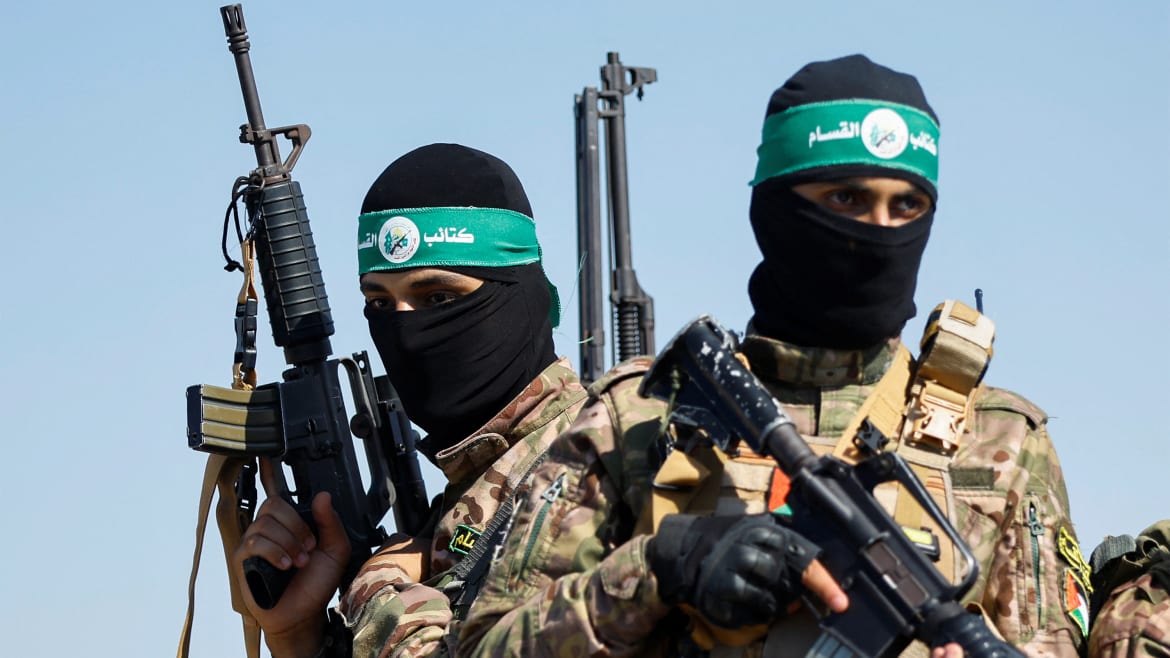Ibraheem Abu Mustafa/Reuters
On Friday, October 6, the Palestinian militant group Hamas launched a daring, brutal and highly effective attack on southern Israel. Easily breaching supposedly impenetrable Israeli defenses and encountering little Israeli military resistance, Hamas beseiged numerous communities and killed at least 800 Israelis, most of them civilians. They spirited dozens of military prisoners and civilian hostages into Gaza on motorcycles, in golf carts and even on foot. It was the most devastating surprise assault in Israel in over 50 years and unprecedented in its impact on its sense of stability and security.
Hamas is the paramilitary wing of the Muslim Brotherhood among Palestinians, formed in 1987 as grassroots Palestinian organizations led a spontaneous uprising against Israeli occupation that focused on protests and stone-throwing. In contrast to that grassroots uprising and the diplomatic strategy of the Palestine Liberation Organization (PLO) that had already decided to seek a two-state peace agreement with Israel, the Brotherhood in Gaza created Hamas to pursue a religiously-sanctioned armed struggle against Israel.
Hamas proved popular in Gaza, which had been highly influenced by the Muslim Brotherhood during Egypt’s rule of the Strip between 1948-1967. Cairo had allowed some Egyptian Muslim Brothers to operate in the Palestinian territory it controlled as a kind of safety valve while cracking down on it inside Egypt itself. So, the cultural groundwork for Hamas’ militancy and socially reactionary political agenda already existed inside Gaza. But it proved a harder sell among Palestinians more broadly.

